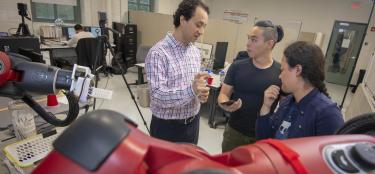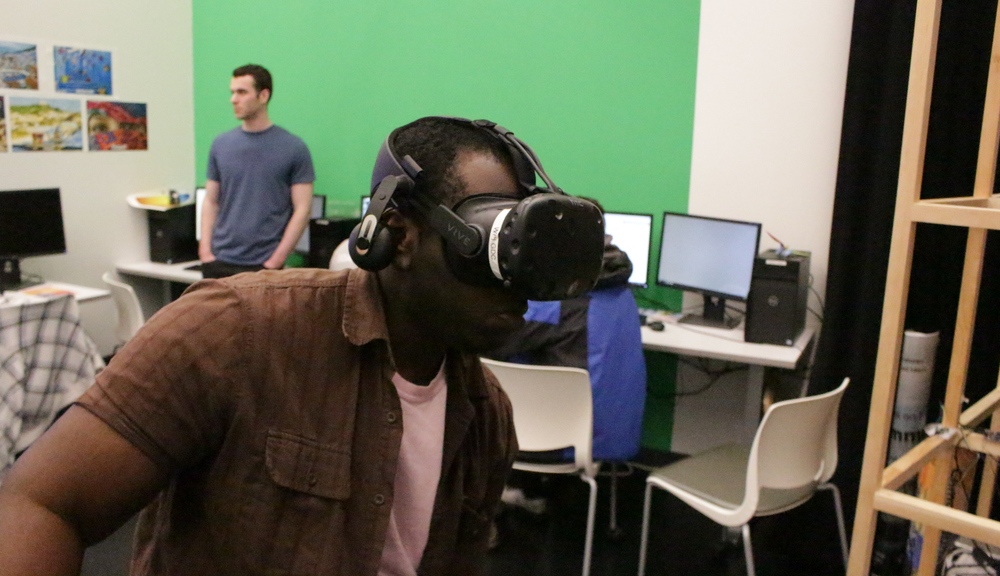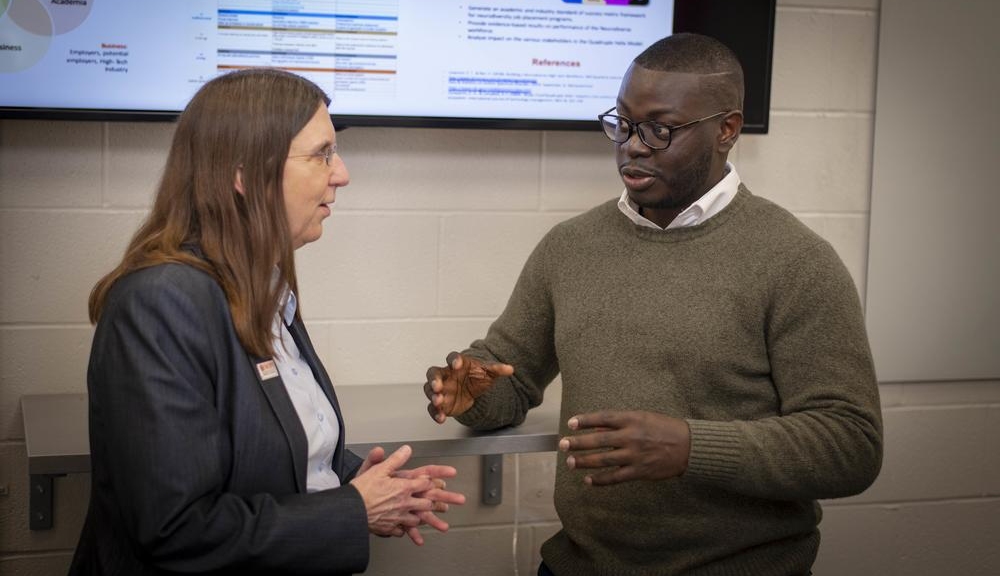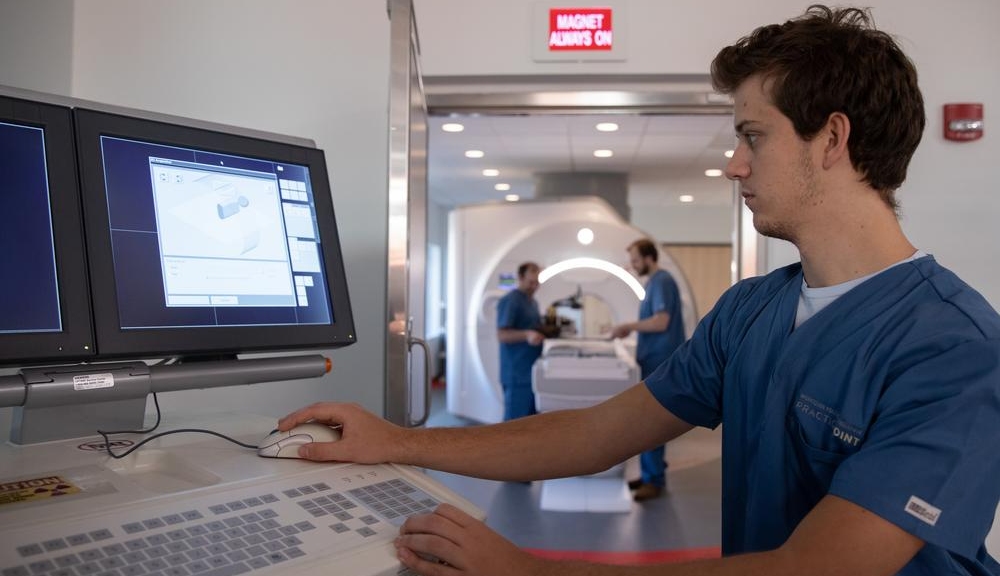Have the Experience You Want.
Pursue Your PhD While Working.
WPI’s Experiential PhD enables you to pursue your doctoral degree—full-time or part-time—while simultaneously working your day job in industry. Your PhD experience will mirror the rigor and quality of our on-campus programs, ensuring your degree holds the same esteemed value. WPI’s expert faculty will guide you through your research journey, while a partnership that includes your advisor and company ensures you succeed—both academically and professionally.
The Experiential PhD is not an academic program itself; rather, it’s a framework that provides support and academic opportunities as you pursue a doctoral degree of your choice. The framework clearly defines roles and responsibilities for all parties involved, logistics, funding setup, IP, contractual processes.
WPI is celebrating 50 years of its Global Projects Program. As a leader in project-based learning, we’re an ideal place to build on the skills you’re honing in industry and work on initiatives that drive impact. Whether you’re working in biotech, AI, or another emerging STEM field, WPI’s Experiential PhD is designed to meet you where you are—and take you where you want to go.
An Experience Like No Other: What Sets WPI Apart
- Personalized Guidance: Full-time research-active WPI faculty will serve as your PhD advisors, providing the same level of support whether you’re remote, on campus, part-time, or full-time.
- Flexible Learning: Designed to fit your schedule, our program allows you to balance your work, life, and academic goals.
- Emerging Focus Areas: Specialize in cutting-edge fields like biotech and AI, where WPI’s expertise will help you lead and innovate.
- Equal Recognition: Your diploma will be identical to those earned by on-campus students, reflecting the high standards and rigor of a WPI education.
The Experiential PhD Program at WPI
WPI brings together industry partners, faculty experts, and talented PhD candidates for an experiential doctoral program. Learn more about how WPI works to facilitate the professional growth of the next generation of industry innovators and leaders in the video with Alex Wyglinski.
|
Industry Partners |
PhD Students |
Faculty Advisors |
| Support professional growth of next generation of industry innovators and leaders via use-inspired research as well as obtain new knowledge in both current and emerging areas. | Conduct doctorate-level use-inspired research on real-world, challenging, technical problems to provide practical solutions while gaining industry skills and practice. | Actively collaborate with industry on real-world problems, mentor the next generation of industry innovators and leaders, and advance the state-of-the-art in one or more disciplines. |
What Graduates Are Saying
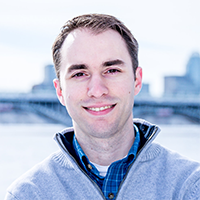
- Travis Collins, ’16, PhD, Electrical and Computer Engineering
- Senior Software Engineering Manager, Analog Devices

- Bengi Aygun Green, ’16
- OTA Software Updates Engineer & C-V2X Engineer, Ford-Werke GmbH
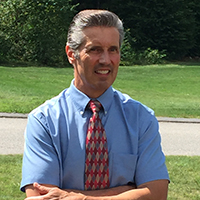
- Victor K. Champagne, Jr., ’18 PhD, Manufacturing Engineering, PhD, FASM International
- Team Lead, U.S. Army CCDC Army Research Laboratory
Highlighted Programs
Below is a list of programs organizations and individuals have found particularly interesting. Browse each page to learn more and find one that fits you!
Learn how WPI can enhance workforce development and help you attract the best and brightest future employees.
Contact the Associate Dean of Graduate Studies, Alex Wyglinski, for more info and to discuss how WPI can set up an experiential PhD collaboration that benefits your organization.
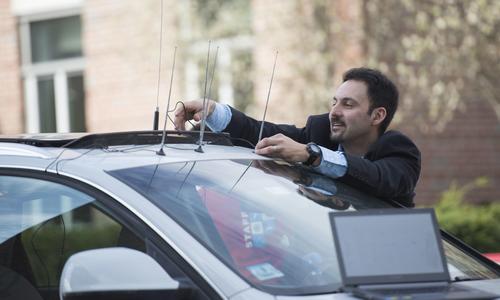
You Don't Need to Quit Your Job to Earn a PhD
Alex Wyglinski, assistant dean of Graduate & Professional Studies at WPI, recently penned an op-ed on earning your PhD while working. In his article, he discusses how PhD programs have evolved and cites WPI's Experiential PhD as a supportive program for industry professionals.
Getting a PhD while in Industry
Chemical Engineering PhD Webinar
Is it possible to get your PhD in chemical engineering while working in industry? Listen in to our webinar discussing WPI’s Experiential PhD program.
Biology & Biotechnology PhD Webinar
Learn from real WPI faculty about earning your PhD in Biology and Biotechnology. Gain insights on how it is possible to obtain your degree while working in industry!
Systems Engineering PhD Webinar
Learn about the Systems Engineering PhD program at WPI! Hear from Professors Don Gelosh and Larray Mallak, and other guests discuss how it is possible to get a PhD while working in industry.
Meet Our Faculty
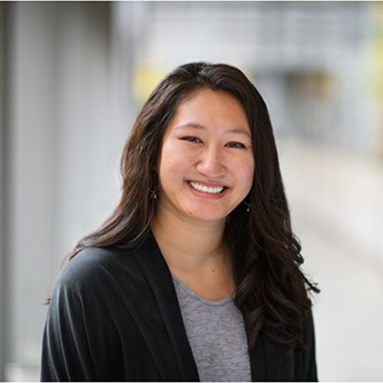
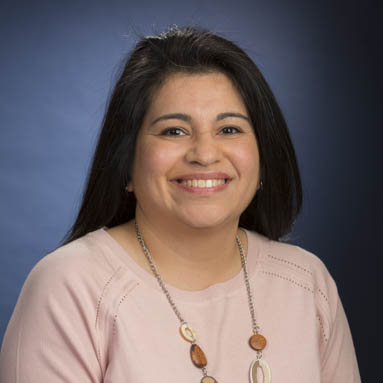
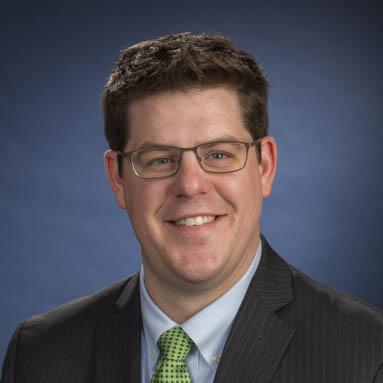

- Danielle Cote, PhD
- Assistant Professor in Materials Science & Engineering
Frequently Asked Questions (FAQ)
Do I have to be on campus full-time to do my PhD dissertation research?
PhD students can perform research either on campus or remotely at your place of employment.
What happens if the equipment I need for my PhD dissertation research is only available at my place of employment?
Experimental PhD can help setup an environment where you can leverage equipment and infrastructure at your employer’s location to help conduct your research.
Can my day job and my PhD dissertation research overlap substantially?
Yes, Experiential PhD can help setup an environment where both your work activities and PhD activities can overlap.
What sort of work activities at my place of employment be suitable for PhD dissertation research?
An ideal scenario is pre-competitive research at your place of employment, where you are exploring a topic that has not be extensively studied nor developed. However, with discussions between your employer and your WPI faculty advisor there are multiple opportunities to craft a PhD dissertation topic based on your work activities.
How is intellectual property handled as part of Experiential PhD?
WPI’s Experiential PhD employs a location-based approach for intellectual property ownership depending on where the research is conducted (at WPI or the employer’s location). However, there is flexibility to develop an intellectual property ownership model that meets everyone’s requirements and needs.
Will I need to pay for my tuition? Are there any other costs?
As part of the Experiential PhD framework, the employer will cover the cost of tuition as well as the support of the faculty advisor and the department to make sure the student has the necessary resources to successfully pursue their PhD degree.
How is the PhD dissertation topic selected?
The student, faculty advisor, and a mentor from the employer will work together throughout the PhD degree regarding the formulation and evolution of the PhD dissertation topic. The PhD dissertation research that will be conducted will be of mutual interest to the student, the employer, and the WPI faculty advisor.
Is the PhD degree within a specific discipline and supported by the Experiential PhD framework of the same quality and rigor as one pursued full-time on campus in a research lab?
Absolutely! There is no difference in quality and rigor between PhD degrees obtained with support of an Experiential PhD framework and one obtained full-time on campus.
Am I allowed to publish my PhD dissertation research in peer-reviewed conferences and journals?
Yes, there are no restrictions on publication.
Who is responsible for determining the quality and rigor of my PhD dissertation research?
The WPI faculty advisor is responsible for determining quality of PhD research and its suitability of becoming a dissertation.
